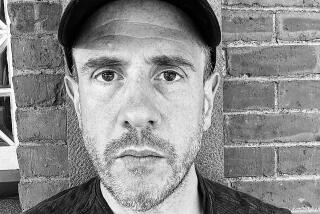Hard-liner in the Spotlight
- Share via
WASHINGTON — When President Bush chose John Ashcroft to be attorney general, the decision seemed like a routine exercise in conventional politics. The new president was throwing a bone--a large one, to be sure, but still a bone--to the religious fundamentalists who were so important to his election and have become a significant and continuing force in the Republican Party.
Today, the decision seems anything but routine. Ashcroft has emerged as the most controversial figure in the Bush Cabinet--and the one the president could replace only at the risk of serious defections from his political base in the 2004 election.
The choice of Ashcroft last winter did not evoke universal applause among Republicans. As governor of Missouri and then a member of the U.S. Senate, he had developed a reputation as a hard-edged zealot on cultural issues--abortion rights, most notably--and a politician who displayed his religious fundamentalism in vivid terms.
Nor was he notoriously charming as a political personality. After all, Ashcroft was available to head the Justice Department only because he had lost a campaign for reelection to the Senate to a dead man, Democratic Gov. Mel Carnahan, who died during the 2000 campaign. So, it was no surprise that some Bush political advisors would have preferred that the key Cabinet appointment go to another Republican conservative with smoother edges--like then-Gov. Marc Racicot of Montana, now the choice to lead the Republican National Committee.
But Ashcroft built a national following on the religious right during his brief flirtation with a presidential candidacy in 1998 and 1999. Although he was never a serious competitor, the Missouri Republican did strike a nerve with the most culturally conservative factions in his party. And it was those people whom Bush decided to appease with the Justice Department appointment.
Ashcroft has not disappointed his followers. If his conservative credentials needed any further validation, it came when liberal interest groups fervently attacked him during his confirmation hearings in the Senate. As a former member of a body then ruled by Republicans, he was always assured of confirmation even if some of his party colleagues do not count themselves--privately, at least--among his fans. Being targeted by abortion-rights and gun-control groups and organized labor is a badge of honor on the far right.
What Bush could not have anticipated, however, was that Ashcroft would become such a prominent administration voice in the war on terrorism. He is the author and defender of the most draconian measures to compromise constitutional rights in the name of national security. He is the one who has equated criticism of these policies with offering aid and comfort to the enemy.
At the moment, the political cost to the White House seems minimal. Opinion polls show imposing majorities of Americans--about 75% in most cases--approve such intrusions on civil liberties as eavesdropping on conversations between lawyers and clients, secret trials by military tribunals and more wiretapping by the government. For many Americans, the fear of terrorism has evoked a demonstrative patriotism that seems to require a greater trust in government and political leaders than was evident before Sept. 11.
But the politics of this issue are more complex than these polls might suggest. For one thing, as pollsters will concede sometimes reluctantly, many of the respondents to their surveys don’t understand what they are approving and may change their minds at any time. For another, public opinion on many of these measures has not yet been influenced by normal political debate. Many liberal critics--in Congress, in particular--have been intimidated into silence by the fear of being accused of some lack of patriotism or proper respect for the president, the troops in Afghanistan or those heroic police officers and firefighters. Republicans dismayed by Ashcroft’s initiatives are unwilling to go public with their criticisms for the same reasons, although their views may show through from time to time, as when Sen. Arlen Specter of Pennsylvania sternly grilled the attorney general during hearings of the Senate Judiciary Committee last month.
So, it is reasonable to guess that Ashcroft is enjoying a political honeymoon that cannot endure. And it seems likely the initiatives he has undertaken are enjoying a level of approval that cannot be maintained.
When the crisis is over and emotions are cooler, Bush will have to confront a different political problem. He will be obliged to explain Ashcroft to another group of voters whose support is essential to his political health-- Republicans who are conservative on fiscal and national-security issues but moderate on cultural questions. Many of these voters, particularly in the suburbs, deserted the Republican line in the last three presidential elections, because they resented the Dan Quayle-Newt Gingrich-Dick Armey-Tom DeLay definitions of acceptable “family values” and patriotism. And some of these voters are also the kind of Republicans who will see threats to civil liberties in the policies of the moment. Others will question such actions as the Ashcroft decision to order a federal legal assault on the Oregon law that allows assisted suicide.
In the 2000 campaign, George W. Bush managed to project an image to these Republicans as a political leader far less imprisoned by ideology.
And, as president dealing with the terrorism crisis, he has clearly reinforced that new image. But Ashcroft is one of the extremists of the right, and Bush eventually will have to pay the cost of putting him front and center in the national political debate.
*
Jack W. Germond is the author of “Fat Man in a Middle Seat : Forty Years of Covering Politics.”
More to Read
Get the L.A. Times Politics newsletter
Deeply reported insights into legislation, politics and policy from Sacramento, Washington and beyond. In your inbox twice per week.
You may occasionally receive promotional content from the Los Angeles Times.










